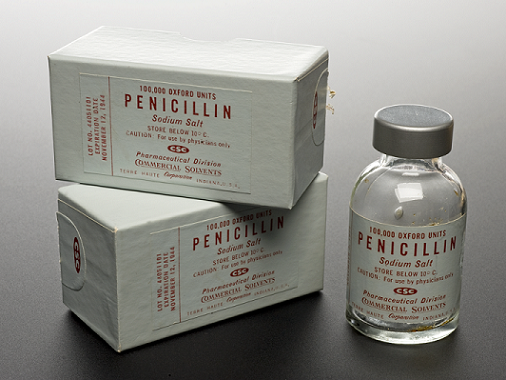Eating fruits during the pregnancy is very beneficial not only for the expecting mother but also the baby present inside. Fruits contain essential nutrients, vitamins that help in the growth of baby, besides giving immunity to both the pregnant lady and baby present inside. Some fruits have the ability to treat minor diseases like cold, flu, constipation, etc. One such fruit that pregnant women can eat during her pregnancy is the elderberry. This fruit, leaves, flower, the bark of the elderberry plant is used in traditional medicine to treat small complications during pregnancy. Elderberry is used as an immunity booster that can prevent minor flu, cold from attacking the pregnant lady.
Elderberry During Pregnancy: Is it Safe to Eat?
Elderberries are the dark purple or blackberries commonly known in Telugu as ‘ParikiPandlu.’ These are the native of European countries. Elderberries are also referred to as Sambucus berries that grow on the Sambucus tree, a flowering plant that grows on the Adoxaceae family. There are about 30 varieties of elder trees and plants that grow around the world. Of them, Sambucusnigra (the European version) is used to prepare traditional medicines. Though these berries have many medicinal properties, there are no proven pieces of evidence about safety during pregnancy. But, most of them say that eating elderberry during pregnancy is quite safe as long as you consume them in limited quantities. However, unripe elderberries are not safe and cause complications.
Read Also: Dates in Pregnancy
Nutritional Values of Elderberry:
These are low-calorie food rich in antioxidants. Along with this, elderberries are high in Vitamin C. 100gm of elderberries contains the following nutrients
- 18.4 gms of Carbohydrates
- 6-35mg of Vitamin C
- Seven gms of fiber
- Good source of phenolic acids
- High in anthocyanins
- Less than 1gm of fat
These fruits are rich in antioxidant flavonols, isorhamnetin, kaempferol, and quercetin. These flavonoids contain anti-viral, anti-allergic, anti-tumor, and anti-inflammatory properties in them.
RELATED BEST 10 ON AMAZON:
| IMAGE | TITLE | TRENDS | SEE MORE |
|---|
 | NOW Supplements, ElderMune 65:1 Elderberry Juice Concentrate With Vitamin C, Immune System Support, 90 Veg Capsules | 288 | MORE VIEW |
|---|
 | Nature's Way Sambucus Soothing Elderberry Hot Drink Mix, with Vitamin C & Echinacea, 10 Count | 3266.5 | MORE VIEW |
|---|
 | Herb Pharm Kids Certified-Organic Alcohol-Free Black Elderberry Glycerite Liquid Extract, 1 Ounce (GLKELD01) | 2256 | MORE VIEW |
|---|
 | Nature’s Way Sambucus Original Elderberry Syrup, Black Elderberry Extract, Traditional Immune Support*, Delicious Berry Fl... | 49998.6 | MORE VIEW |
|---|
 | Eclectic Institute Elderberry Immune Fd 90 | 50 | MORE VIEW |
|---|
 | Garden of Life mykind Organics Elderberry Gummies for Adults & Kids - Immune Support Supplement with Organic Fruit, Herbal... | 41571.5 | MORE VIEW |
|---|
 | Health Logics Fortify! Capsules with Vitamin C, Zinc, Elderberry, Vitamin D, Lysine, Echinacea, and Mushroom Extracts for ... | 250.8 | MORE VIEW |
|---|
 | Nature's Way Black Elderberry Capsules, Traditional Immune Support*, 100 Vegan Capsules | 66500.3 | MORE VIEW |
|---|
 | Nature's Way Sambucus Elderberry Gummies with Vitamin C and Zinc for Adult, Immune Support*, 3200 mg, 60 Count | 557294 | MORE VIEW |
|---|
 | Viva Naturals Sambucus Elderberry with Vitamin C, Zinc, Vitamin D3 5000 IU & Ginger (120 Capsules) - Antioxidant & Immune ... | 207068 | MORE VIEW |
|---|
 | Multivitamin Multimineral for Women Men & Kids by MaryRuth's | No Added Sugar | Vegan Liquid Vitamins for Adults & Kids | ... | 135230 | MORE VIEW |
|---|
 | Emergen-C Immune+ Elderberry Gummies, 750 mg Vitamin C with Vitamin D, Zinc and Electrolytes, Immune Support Dietary Suppl... | 97684.8 | MORE VIEW |
|---|
 | SmartyPants Prenatal Formula Daily Gummy Multivitamin: Vitamin C, D3, & Zinc for Immunity, Gluten Free, Folate, Omega 3 Fi... | 95365.6 | MORE VIEW |
|---|
 | Zarbee'S Elderberry Gummies For Kids, Immune Support With Vit C & Zinc, Daily Childrens Vitamins Gummy, Natural Berry Flav... | 93849.6 | MORE VIEW |
|---|
 | Elderberry Gummies with Zinc and Vitamin C Herbal Supplements Ingredient for Potent Antioxidant Support Immune Defense as ... | 77880 | MORE VIEW |
|---|
 | Zhou Nutrition Elder-Mune Sambucus Elderberry Gummies with Zinc and Vitamin C for Adults & Kids (Age 4+) Immune Support wi... | 68688 | MORE VIEW |
|---|
 | Nature's Way Black Elderberry Capsules, Traditional Immune Support*, 100 Vegan Capsules | 66500.3 | MORE VIEW |
|---|
 | Zarbee's Elderberry Gummy Daily Immune Support Supplement With Vitamins A, C, D, E & Zinc, Black Elderberry Fruit Extract,... | 64723.7 | MORE VIEW |
|---|
Tips: "Amazon, Amazon Prime, the Amazon logo and Amazon Prime logo are trademarks of Amazon.com, Inc. or its affiliates". AS AN AMAZON ASSOCIATE, WE EARN AFFILIATE COMMISSIONS FROM QUALIFYING PURCHASES.























